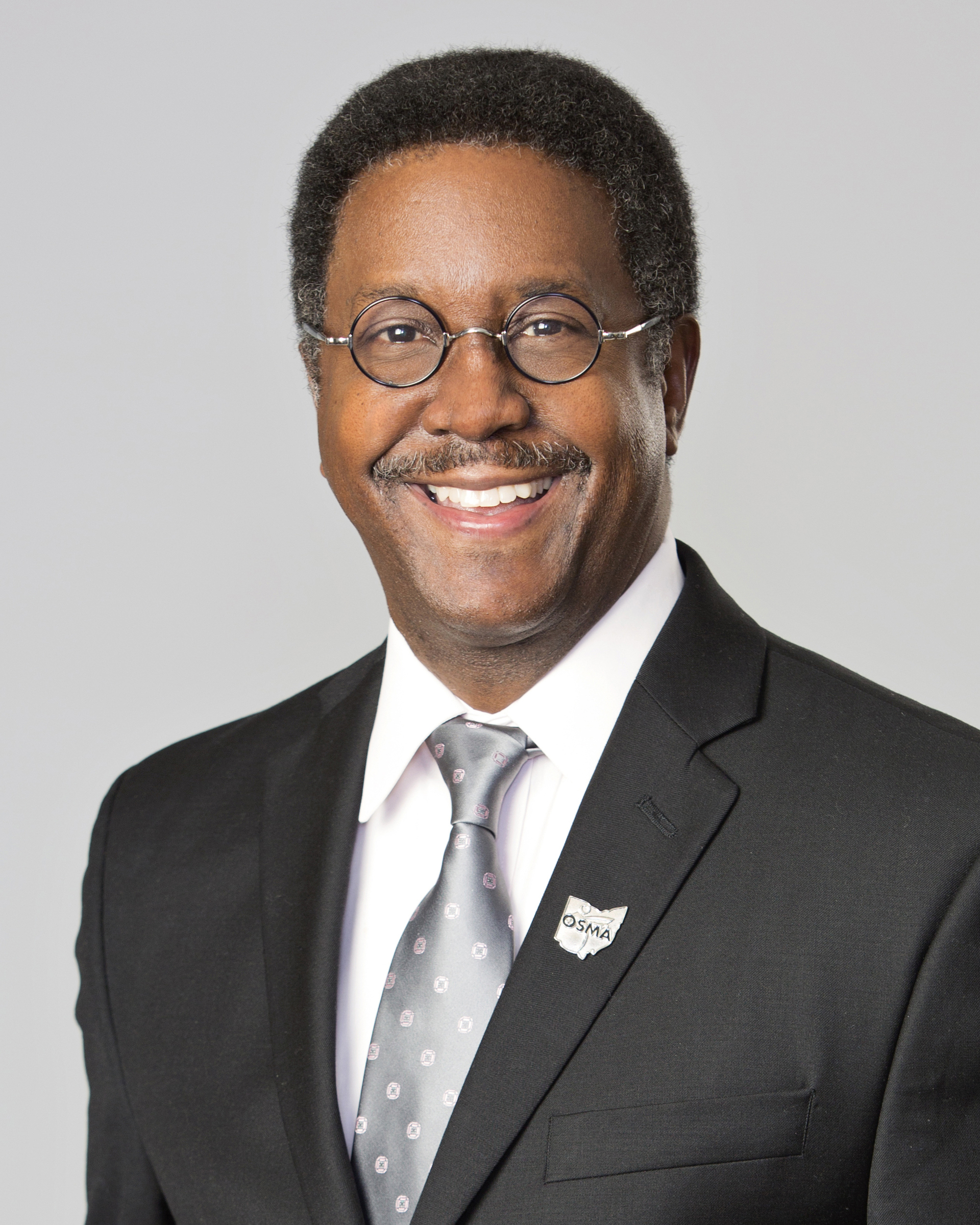02/20/2024
Celebrating Black History Month - Dr. Armstrong feature
In honor of Black History Month, we’re profiling some of the African American physician pioneers in Ohio, including past OSMA president Dr. Armstrong.
Interview with Dr. Anthony Armstrong:

President of OSMA, 2020-2021
Q: Are there African American medical professionals who inspired you in your career, either as you were getting started or now?
A: I believe that every life experience contributes to the development of a person’s character. Our role models, relationships, triumphs, failures and tragedies are the blocks by which we build our identity. My parents were two of my most important role models growing up. Both of my parents came from humble backgrounds. My mother is a recently retired federal magistrate judge. My father is deceased and was an Ob/Gyn who practiced for 50 years. We spent 14 fabulous years practicing together. When my father left the army around 1960 he was recruited by a very highly respected African American general surgeon to return to Northwest Ohio. His mission was to specifically recruit African American professionals to Toledo, Ohio. As such, I spent my childhood growing up surrounded by a dedicated community of African American physicians as well as other healthcare professionals. This undoubtedly had a profound positive effect, inspiring me to pursue a lifetime career in medicine.
Q: What progress have you seen in the medical field throughout your career in the areas of diversity, equity and inclusion? Where does the field still need to grow?
A: Many disparities arise out of the social determinants of health, including where patients live and work, their access to good food, housing and transportation. Providers with homogeneous leadership teams and physicians who don't reflect the communities they serve will find it difficult to address those social determinants and move the needle on racial and ethnic health disparities. Many agree better outcomes stem from a workforce that resembles the diversity of its patients. Most agree that fixing healthcare's diversity problem starts at the top. You might begin by thinking outside the box such as bringing in members from the local communities. Then you start getting the diverse voices that you need to solve those issues surrounding social determinants. We however cannot afford to neglect the recruitment aspect at all levels of medical health care. From a physician perspective a workforce that is reflective of its patient base promotes stronger doctor-patient relationships and makes miscommunication as well as noncompliance less likely. Many experts feel that lack of diversity among healthcare industry professionals may be a greater cause of disparities in access and outcomes than the lack of health insurance, but it does not start or stop there. We must also continue to advocate for diversity in the recruitment of management at all levels, administrative/ physician leadership and physicians in training.
Finally, I believe most of us have been fortunate to have benefited from higher education. With that said, I think I would be remiss in not addressing institutional racism. I was actually born in a segregated hospital and my father when just beginning his career in private practice actually experienced being denied hospital privileges solely based on the color of his skin. Throughout the majority of my career I've personally been reluctant to address this issue head on for a variety of reasons. Perhaps it's time for all of us as African American leaders that we openly and honestly address our own personal battles and barriers we overcame within the very institutions that we were educated in, trained, work within or are even employed by. And how we managed to persevere and to become role models and leaders sometimes seemingly against all odds in a society that may not fully realize or appreciate our contributions to it.
Q: This month is a good opportunity to reflect on the health disparities. How do you think Ohio physicians can best affect change in these disparities on behalf of patients?
A: Some of the answers to this question are in the response from question #2, but one of the many lessons learned from the pandemic that I know is true for healthcare providers across Ohio was Telehealth. This allowed us to consult with our patients face-to-face via computer, laptops or smartphones, and if you do not have video capabilities, then we can still provide effective care via a telephone call. What are your symptoms? How are you feeling? What is your prior medical history? Do you need to be tested for something and where can you go to be tested? Do you need to be seen? These are all questions that can answered via telehealth and help us as healthcare providers provide some level of care as opposed to no care at all.
Physicians have a major role to play in assuring that medical care is available to everyone – especially those in minority communities who may not have a relationship with a doctor.
I believe that we have to create new and innovative ways to make healthcare more accessible to everyone, especially those who are the most vulnerable among us. We know that early intervention of care can significantly lower the chances of necessary chronic medical care later. We all need to be dedicated to assuring that health care is fully inclusive and attainable so that everyone has access to necessary medical services regardless of race, ethnicity, sexual orientation, or any other defining characteristic.